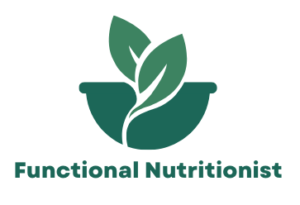As you grow older, it’s not just the way you look that’s going to be different. Nutritional needs change according to the aging of the body to support all of these changes. Moreover, you will be prone to disease in old age. If you do not get adequate nutritional fulfillment from a functional nutritionist, your quality of life and health condition will deteriorate. It is thus vital to understand what will change with age concerning nutritional requirements.

How Does Aging Affect Nutrition?
During the initial stages of human life, the body actually requires a high intake of vitamins and minerals for strengthening the immune system. As you get older, your nutritional needs become greater and have to be met such as high carbohydrates and protein.
Foods containing low-fat protein are required for maintaining muscle and bones as you age. Actually, the average adult will lose 3-8 % of their muscle mass every 10 years after attaining the age of 30.
That is the genesis of adult bone health issues. It has been found that if you consume your daily needs for protein, you would be losing 40% less muscle mass than those consuming low amounts of proteins.
The older you get, the more you can become constipated. You need to consume more fiber. Constipation among the elderly is as a result of less intensive daily activities and the adverse effects of the drugs used.
It is no wonder that the older you get, the more you have to think about fiber to keep off digestive problems. Fiber also tends to lower blood cholesterol, which accumulates with age. You can obtain fiber from fruits, vegetables, as well as grains.
Fat, sugar, and salt needs, on the other hand, will have to be reduced, beginning from productive adulthood all the way to old age. The more mature you get, the lower you should have your total calorie intake per day.
Micro nutrient needs increase with advancing age
Although they require less calorie intake, older adults require a higher micronutrient intake. It is, therefore, of importance to take a variety of fruits, vegetables, fish, and lean meat as one is aging.
Below are some of the micronutrients that require increase with age.
Calcium
With time, as one ages, his or her body becomes unable to absorb calcium minerals from food. In addition, hormonal changes increase the excretion of calcium from the kidney into urine. Therefore, there is a need to increase calcium needs.
Vitamin B 12
Vitamin B12 is essential in the production of red blood cells and in maintaining health in the brain. Unfortunately, studies estimate that 10-30% of people aged 50 years and above begin to lose their ability to absorb vitamin B 12 from their food.
As a result, some are advised to take extra vitamin B 12 supplements. This condition is associated with reduced production of acid in the stomach, which affects vitamin B 12 food absorption.
Magnesium
With age, there is a risk of having a magnesium deficiency due to poor intake, the use of some drugs, and also changes in bowel function.
Vitamin D
With increasing age, the skin’s ability to manufacture sunlight into vitamins reduces. This condition will also affect the body’s absorbing ability of vitamin D. Hence, vitamin D consumption has to be supplemented.
Full Guide on How to Meet Elderly Nutrition Needs
The body of every person undergoes changes with time. To you, the elderly or the senior citizen, the elderly undergo various changes in the body, which later reflects on their nutritional needs. However, however old a person is, they always need to meet their nutritional needs so that their body remains healthy. Therefore, knowing nutrients essential for the elderly and the tips of meeting those nutritional needs become very crucial in keeping the health of the elderly intact.
Changes in Physical Body Affect the Elderly Nutrition
The elderly nutritional needs at times become hard to generalize. Some elderly people have a lesser need for the intake of nutrients yet are in greater need of higher amounts of other forms of nutrients. However, at times it is vice versa.
This is usually influenced by the health conditions of each elderly person themselves. For example, elderly people who suffer from kidney disease may need lower levels of potassium, while others do not. While on the other hand, elderly people with a history of hypertension actually need to consume high potassium to help overcome their condition.
However, in general, the elderly will indeed experience a decline in certain nutritional needs. This is because body mass and metabolic rate also decrease, so that the elderly often become less physically active.
Factors that influence the fulfillment of nutrition in the elderly
Although it tends to decrease, the elderly sometimes still find it difficult to fulfill their daily nutritional needs. This is usually influenced by several factors, both physically and mentally. One of them is changes in the senses.
In fact, elderly people tend to lose their sensitivity to taste. The taste for the elderly may be bland or even bitter in the food they consume, so they often lose their appetite.
Diseases suffered.
Types of drugs consumed, considering that some types of drugs can cause dry mouth or loss of appetite.
Minimal income or budget.
Disorders when chewing or swallowing food.
Mental health disorders, such as depression or feeling lonely because of living alone, either because of death or divorce from a partner.
Despite experiencing various changes in the body, meeting nutritional needs is still important for the elderly. Reported from Health Guide, this can provide various benefits for you in the future, such as:
Supports longer and stronger life
Good nutrition helps improve the immune system in fighting off disease-causing toxins, maintains the weight of an elderly person. This reduces the risks of heart diseases, stroke, high blood pressure, type 2 diabetes, osteoporosis, and cancer. Those suffering from various clinical conditions, your nutritional needs helps you fight whatever disease you are suffering from.
Shaping the Mind
Some of these nutrients, like omega 3, may help improve concentration and memory and may even reduce risks of neurodegenerative diseases such as Alzheimer’s disease.








